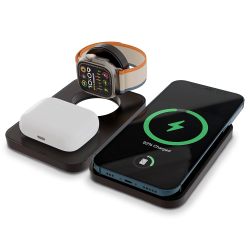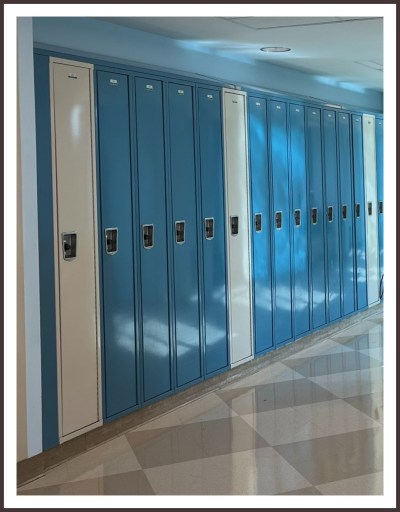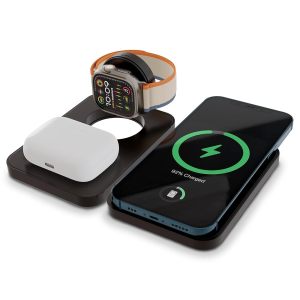In June of 2024, superintendent of schools Thomas Scarice recommended that Westport Public Schools move to a smartphone-free environment.
It’s already in place in the middle and elementary schools. On November 5 — the start of the second quarter — the ban begins at Staples High School.
Last night, the Board of Education — and students, parents and the rest of the public — heard details of the plan the BOE had asked the school to develop. An implementation committee included administrators, teachers and students.
Catherine Campagnino reports:
Scarice said that the new policy — in which phones must be put in lockers — “takes the burden off the teacher.” Students will have an extra 5 minutes each morning to go to their lockers — which are spread throughout the sprawling school — and another 5 minutes at the end of the day to retrieve them.
The extra time will come from slicing 1 minute off each class, and reducing the Connections period from twice a week to once.
Smartwatches and wireless headphones are included in the new policy. The goal is to limit as many technological distractions as possible.

Phones, watches, earbuds are all included in the Staples ban.
Teachers support the change, Scarice said. Social studies instructor David Willick noted that in a survey, 70% support it.
Math teacher and Westport Education Association president Stacey Delmhorst added, “The general feeling of the classroom has changed dramatically.” She praised the “extremely collaborative process” that led to the next stage.
One key to the plan was getting consensus from teachers and students. A working group will continue to meet throughout the year, to monitor its effectiveness.
An interim step — phone pockets in classes — has been “a great segue” to the next step, assistant principal Micah Lawrence said. Connections periods have been used to help students “learn the importance of face-to-face interactions.”
He was one of 4 assistant principals who spoke in favor of the plan. Christine Cincotta — favoring “restored focus in the classroom” — noted that the ban’s effectiveness depends on consequences.
Students caught with a smartphone will speak with an assistant principal. A parent must then come to get the phone, or give consent for the AP to return it to the student.
First-time offenders will get 1 detention; second-timers, 2. A suspension would follow the third offense.
AP Patrick Micinilio cited one initial problem: Because so few students used lockers since the building opened in 2005, 600 of the 1,850 lockers were inoperable. All have been fixed.

Staples’ lockers are large. They range from the culinary kitchens near the pool, to the furthest reaches of the third floor. Until now, they have seldom been used.
When the discussion was opened to BOE comments, Abby Tolan wondered about the effect on students with disabilities or medical issues, who may rely on phones for a variety of reasons.
That will be handled on a case-by-case basis. Scarice said it has not been an issue in Wilton, which imposed a similar ban last year.
After Kevin Christie asked about students who use smartphones for schoolwork. Scarice suggested “getting creative” — for example, buying iPads for art classes, and cameras for science classes. Students can also check out video cameras from the library.

A big change is coming soon to Staples High School.
Board of Education student representative Souleye Kebe offered a different view. The senior’s informal survey showed that 90% of students oppose the ban (though 35% acknowledge it would be good for students).
Only 3 of the 40 students he spoke with said they would put their phones in lockers. However, most said they would not take them out of their backpacks, because of fear of getting caught.
Kebe thought a “better habit” is to allow students to learn that simply having a phone on hand does not mean it has to be used.
Scarice disagreed, calling it “too much of an urge.”
One major issue, brought up by BOE student representative Anwara Olasewere, is that students who keep phones in their backpacks may use them in bathrooms. There is no plan in the policy to check lockers or backpacks for compliance.

Board of Education student representatives (from left): Souleye Kebe and Anwara Olasawere.
During the public comment session, math teacher Lenny Klein admitted he had been “dead wrong” about the policy. The current classroom pocket plan was working, he said, noting that it is nice to hear students talking with each other.
“It works for learning, it works for students, and it works for Staples,” Klein said.
Kate Bulkeley — co-president of the class, with Kebe — spoke about the lack of an exemption for seniors, who have spent 3 years without a ban.
“We are allowed to drive a car and vote, but not have our phone,” she said. She wondered if seniors could use phones during free periods, with an ID to prove their grade.
Math teacher Maggie Gomez said hat when she gave a questionnaire to seniors about the phone pockets, most said it helped them focus, and motivated them to get their work done.
Art teacher Carla Eichler observed that students are interacting more now — including freshmen with seniors.
Italian teacher Louisa D’Amore said that she has always made her son — a junior — put his phone in her desk. If he can go more than 2 yeas without a phone, she concluded, every other student can too.

(“06880” frequently covers education issues — and everything else of importance in town. If you appreciate our work, please click here to make a tax-deductible contribution. Thank you!)
Like this:
Like Loading…

